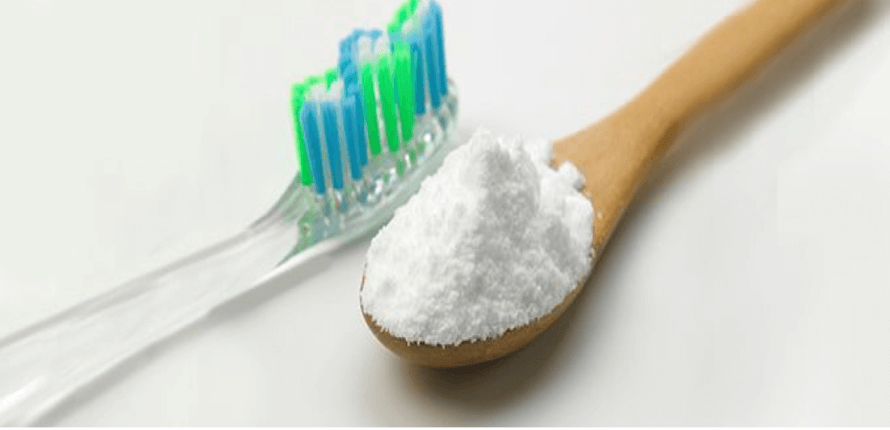In Mississauga, we have many brands of toothpaste available to us. However, at St. Lawrence Dentistry, some of our valued dental patients inquire about the value of toothpaste alternatives.
Baking soda or “sodium bicarbonate”, is a fine, white powder with many home uses. It has a somewhat salty, alkaline flavor. Its natural form is nahcolite and is part of the mineral natron. Many natural water springs contain it. While baking soda can’t shield your teeth from cavities as effectively as fluoride toothpaste can, it’s still considered a suitable cleaning agent for some people’s teeth.
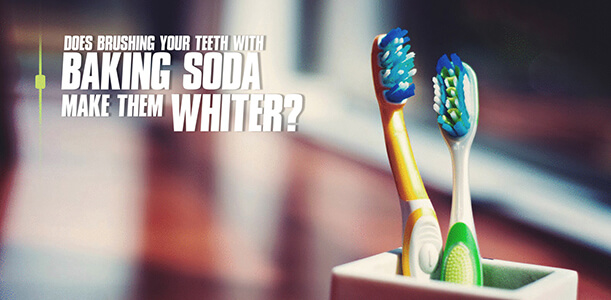
Baking Soda can help clean teeth. As per the Journal of Clinical Dentistry (June 2008), baking soda products were more helpful than applying products without baking soda. There are numerous positive characteristics of baking soda which make it a reasonable alternative to toothpaste. In addition, its use corresponds with a decrease in plaque and gingivitis.
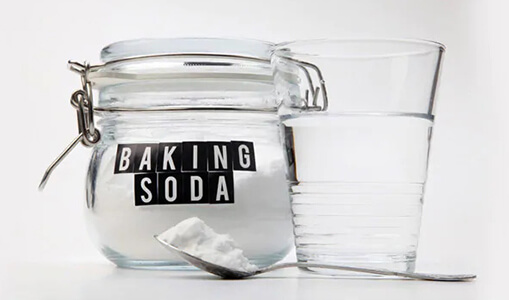
Biofilms are groups of microbes that adhere to the outside of your teeth and ultimately cause gingivitis and cavities. When you brush, grains of baking soda disrupt that biofilm, decreasing the microbe count and help to limit harm to your teeth and gums. Some damaging bacteria need more acidic circumstances to flourish in your mouth. When you clean your mouth with a baking soda and water solution, the pH in your mouth raises, making it less acidic. As a result, using baking soda as toothpaste may make it more difficult for cavity-causing microbes to increase in your mouth. Baking soda has intrinsic whitening properties and can remove stains on your teeth. That’s why it’s a favorite ingredient in many kinds of toothpaste. Various studies have revealed that baking soda has mild abrasiveness that can lift stains from the exterior of your teeth. Baking soda is economical to use and readily available at our local stores.

There are also limitations to using baking soda as toothpaste. First, the Canadian Dental Association does not approve it. For many, the most significant problem of cleaning with baking soda is that it takes awful. Baking soda’s surface may also make you seem like you have sand in your mouth — no one’s desired perception. If you want the advantages of baking soda but with a better taste, you could try one of the many popular toothpaste types that have baking soda as a component. If the feeling of natural baking soda doesn’t worry you, but the salty flavor does, Dr. Hawyluk suggests combining it with a tiny amount of peppermint to improve the taste. Finally, baking soda is a light abrasive. While the American Dental Association (ADA) acknowledges baking soda safe for your enamel and dentin, some have given it a low score for teeth lightening since it may not eliminate stains as dramatically as some other products. If baking soda does not perform well for you as a teeth whitener, you may want to look at products that include hydrogen peroxide.
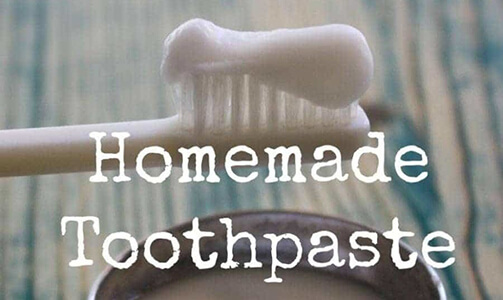
There is no “fluoride” in baking soda. Brushing with baking soda in and of itself will not give you the fluoride you may want to help re-mineralize teeth and stop cavities. Toothpaste approved by the Canadian Dental Association contains fluoride to inhibit tooth decay. Although fluoride is a natural element overflowing in water and air and included in our bones and teeth, supplemental fluoride in toothpaste provides an extra defense against tooth decay. Using baking soda as your sole toothpaste will not give you topical fluoride found in many commercial kinds of toothpaste. Therefore, using baking soda alone may not provide you the cavity protection you need.
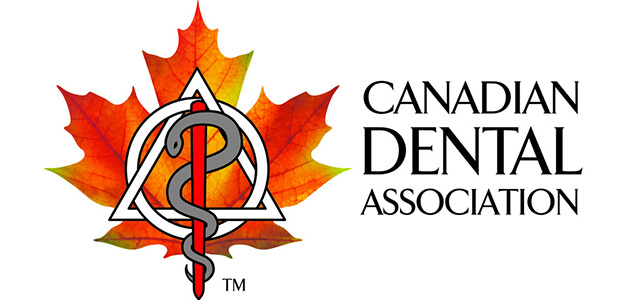
Suppose you want the cleaning benefit provided by brushing teeth with baking soda and enjoy the added shield provided by a toothpaste that includes fluoride and defends against cavities. In that case, you may consider Crest Pro-Health toothpaste. Available in various flavors: Clean Mint, Smooth Peppermint, and Whitening Power, this commodity is the original and exclusive toothpaste accepted for six different areas: cavities, gingivitis, plaque, whitening, sensitivity, and breath.
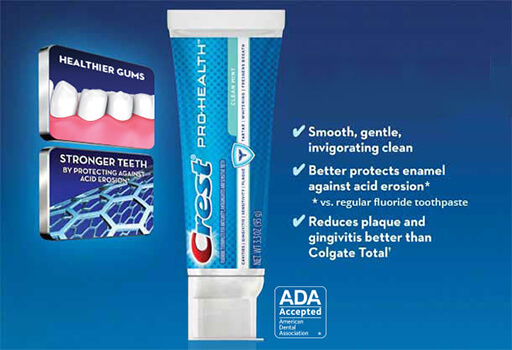
You can attempt baking soda for brushing but be prepared for a bit of a mess. Brushing teeth with baking soda may be economical, but it’s certainly not neat. Baking soda does not come in fantastic and user-friendly packaging like toothpaste. It also will seem gritty. Anyone who has undergone brushing teeth with baking soda will most likely comment on the disagreeable feeling of soda everywhere in their mouth. Dr. Hawryluk Jr. recommends placing baking soda in a shallow dish, dampening your toothbrush, dipping it in the baking soda, making a dense paste, and then brushing like normal. This thick paste will clean away stains and microbes. Baking soda is a reasonable alternate to regular toothpaste for people concerned about scouring away their enamel with coarse paste. However, as mentioned earlier, baking soda does not have fluoride, which is essential to protect your teeth from cavities. It also does not have the superb minty taste that numerous types of toothpaste have.
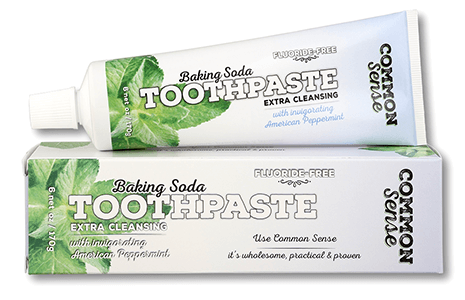
Be careful when browsing online tooth whitening solutions that include baking soda. A common misunderstanding is that if you combine baking soda with apple cider vinegar, lemon juice, it becomes a viable tooth bleaching agent this is not the case. The acidity will hurt your teeth more than support them. The acid will erode tooth enamel, dissolving your teeth. Talk to our Dr. Hawryluk at our Mississauga Dental office if you a looking to find a safe method of teeth whitening.
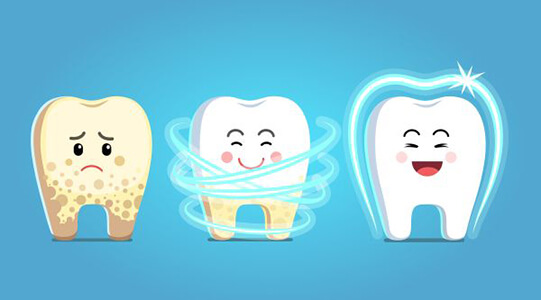
As an aid in tooth cleaning, Dr. Hawryluk feels baking soda can be a reasonable alternative or intermittent alternative for some. We love when our patients use soft abrasive pastes to preserve their enamel! If you have any questions about abrasiveness, whitening, or which toothpaste to use, please call our office to schedule a visit. We are located in the Port Credit district of Mississauga and would be happy to help you!
References:
https://pubmed.ncbi.nlm.nih.gov/29056188/
https://www.healthline.com/health/baking-soda-toothpaste
https://pubmed.ncbi.nlm.nih.gov/29056188/
https://www.ncbi.nlm.nih.gov/pmc/articles/PMC3312703/
https://jada.ada.org/article/S0002-8177(17)30811-5/fulltext
https://www.ncbi.nlm.nih.gov/pmc/articles/PMC6784469/
https://crest.com/en-us/oral-health/why-crest/toothpaste/baking-soda-for-brushing-teeth-pros-cons
https://en.wikipedia.org/wiki/Sodium_bicarbonate
- St. Lawrence Dentistry Looks Forward To St. Patrick’s Day! - March 12, 2025
- Understanding Dental X-Rays and Radiation: What You Should Know - January 13, 2025
- Happy New Year from St. Lawrence Dentistry! - December 30, 2024



